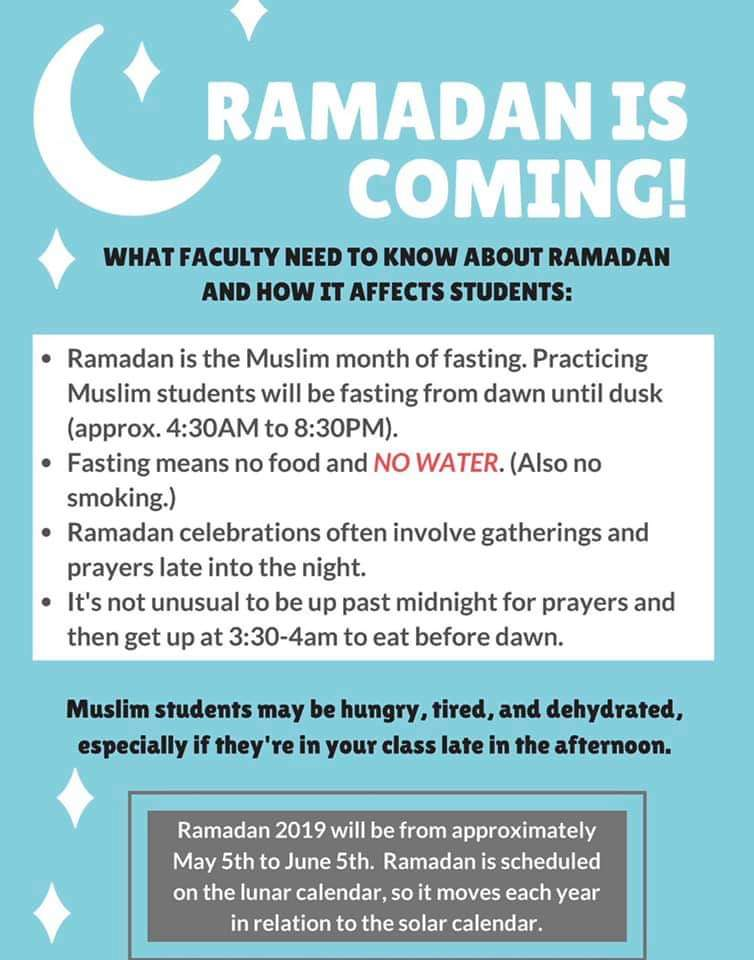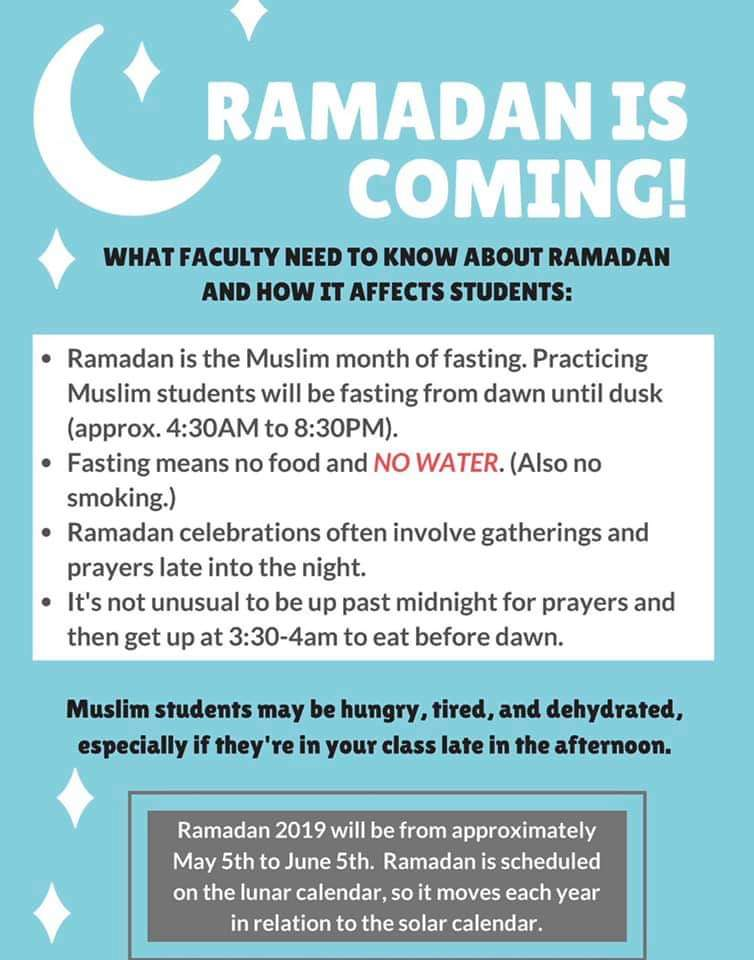- Community
-
Programs
- Schools
-
Careers
- RN Specialties
- Best RN Jobs and Salaries
- Aesthetic Nurse
- Nursing Informatics
- Nurse Case Manager
- NICU Nurse
- Forensic Nurse
- Labor and Delivery Nurse
- Psychiatric Nurse
- Pediatric Nurse
- Travel Nurse
- Telemetry Nurse
- Dermatology Nurse
- Nurse Practitioner
- Best NP Jobs and Salaries
- Family NP (FNP)
- Pediatric NP
- Neonatal NP
- Oncology NP
- Acute Care NP
- Aesthetic NP
- Women's Health NP
- Adult-Gerontology NP
- Orthopedic NP
- Emergency NP
- Psychiatric-Mental Health NP (PMHNP)
- APRN
- Nurse Educator
- Nurse Administrator
- Certified Nurse Midwife (CNM)
- Clinical Nurse Specialist (CNS)
- Certified Registered Nurse Anesthetist (CRNA)
- Resources
- Education



Christy1019, ASN, RN
879 Posts
I live near one of the largest Muslim communities in the country so Ramadan is something that we tend to be very familiar with in this area. However, I wasn't sure which age they begin fasting so I just asked one of the Muslim nurses I am working with tonight and she said verbatim "When they have matured enough to fully understand why they are fasting. We would never make a 5yr old fast because 'God wants them to', they would perceive it as something bad, so it is different for every child." She also said that in her child's school (primarily Muslim students) they are having problems with younger children claiming to be fasting so that they can skip lunch and go out for recess and then end up not feeling well. She agreed with what was already said about people who are ill, women who are pregnant, menstruating, or breastfeeding, and those with extremes of age can be exempt from fasting.